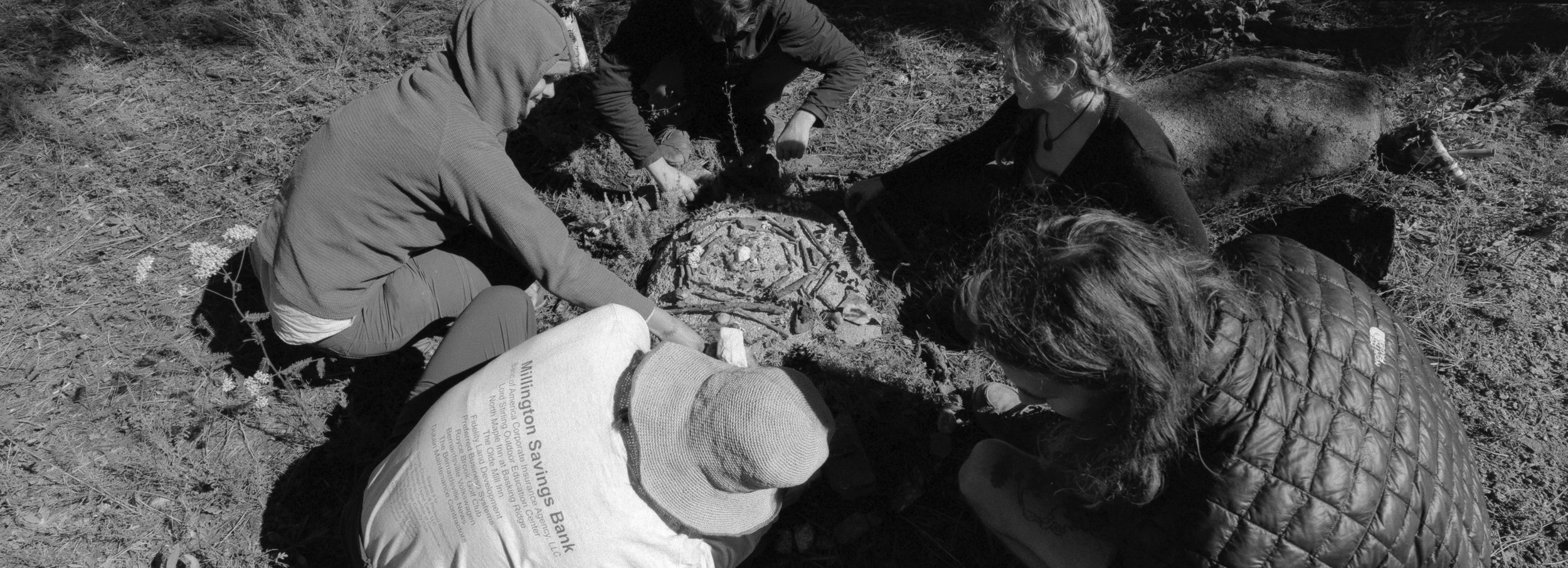
Community Agreements.
Try it on
Be willing to "try on" new ideas, or ways of doing things that might not be what you prefer or are familiar with.
Invitation To Co-create A Brave space
Push yourself to take risks and be outside of your comfort zone. Remember that "safe-enough" does not ="comfort." Practice the "fried egg theory." There is no 100% safe space. Liberation theorists say "we're aiming for just enough trust and safety" to do the work, or creating a 'brave space.'
Awareness of Judgment
Recognize that we all make judgments and make a commitment to start noticing them as they arise without judging yourself. Practice being curious about judgment, noticing judgment, suspending (temporally) judgment when listening and communicating. Naming/acknowledging instead of ignoring judgment, internally.
Group Care and Intention
Adrienne mare brown [sic] wrote (2021), "Side conversations, or one-on-ones, should help us get better understanding, not check out. We all need room to vent, to process, to get clear on what isn't working. [And] when we are trying to grow deeper unity, we shouldn't use the side conversations to sow dissent, disrespect the process, or organize participants away from unity or principled critique. One great test is to ask yourself, Could I bring the essence of this conversation back to the group?' A critique that is never voiced in the full group, or directly with someone, is not given the power to truly shape the future of the work."
Practice Self Focus
Attend to and speak about your own experiences and responses. Do not speak for a whole group or express assumptions about the experience of others - naming an assumption with awareness is welcome.
Practice “Both/And”
When speaking, substitute "but" for "and." This practice acknowledges and honors multiple realities.
Understand The Difference Between Intent and Impact
Try to understand and acknowledge impact. Denying the impact of something said by focusing on intent is often more destructive than the initial interaction.
Refrain From Blaming or Shaming Self and Others
Practice giving skillful feedback (to others and yourself). Refrain from directing personal attacks on individuals or groups or self.
Move Up/Move Back
Encourage full participation by all present. Take note of who is speaking and who is not. If you tend to speak often, consider "moving back" and vice versa. Ok, to allow for pauses/silence. Pause doesn't mean something's not happening.
Practice Mindful Listening
Try to avoid planning what you'll say as you listen to others. Be willing to be surprised, to learn something new. Listen with your whole self. If someone has or expresses a need, others do not give their own opinion about their perspective on that person's need. As a first step, we can reflect back what we heard the person express.
Confidentiality
Take home learnings but don't identify anyone other than yourself, now or later. If you want to follow up with anyone regarding something they said in this session, ask first and respect their wishes. Other folks' sharing is not our "case study." Let's hold the gift of others' sharings within the container.
Mistakes Are OK, Even Encouraged
Remember the fried egg theory. Learning requires taking risks, and taking risks means that sometimes we will make mistakes. That is ok. I will choose to believe that the group will support me and not leave me hanging if I have an AFGE (another fing growth experience)!
Right To Pass
You can say "I pass" if you don't wish to speak. At the same time, please know that consistent "passing" impacts the safety of the group. If/when someone is consistently passing, the rest of us can bring curiosity to checking in, seeing if there are things we may not be seeing as a larger collective.
Accept “Non-Closure”
Due to the time constraints of the group, there may be times where we may not be able to find closure on a discussion or topic before the time ends. Know that we can always come back again and revisit these discussions throughout the year, as often as we need and want to.
Self-Care
Everyone is invited to take care of themselves as they need to throughout our time together whether that be using the restroom, eating, etc. We also agree to communicate with each other around our self-care as needed. Self-care and self-regulation is a practice that happens over time.
- East Bay Meditation Center, with additions from Dr. Abrams Multicultural Counseling classes between 2015-present.
Originally adapted from Visions Inc., "Guidelines for Productive Work Sessions"
During our Song Circle and Fire Circle you are also invited to empower the four intentions of council:
I trust that with these community agreements, we will be able to co-create a container that is respectful, brave, and conducive to our expansion.
see you around the fire!
Reet Rannik Carías
